National Reconciliation Week has been celebrated around Australia from 27 May to 3 June, commemorating two significant milestones in Australia’s reconciliation journey. They are the anniversaries of the successful 1967 referendum and the High Court Mabo decision in 1992.
2021 marks 20 years of Reconciliation Australia and almost three decades of Australia’s formal reconciliation process. It is a time for all Australians to take part in the reconciliation journey and learn about shared histories, cultures and achievements.
What does National Reconciliation Week mean for us?
Across our organisation, we work in partnership with communities on a range of Indigenous-led science initiatives.
On the east coast, we’re tapping into the value of Indigenous knowledge as part of the Garragal Project and in Cape York, we’re using AI to save baby turtles.
We asked some of our team members what National Reconciliation Week means to them. We also wanted to know practical steps everyone can take to contribute towards reconciliation in Australia.
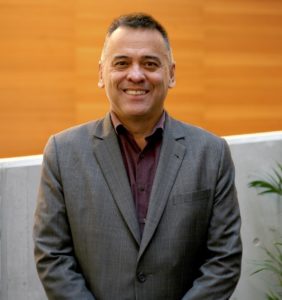
Dr Chris Bourke
Dr Chris Bourke
Chris is our newly-appointed Program Director, Indigenous Science and Engagement.
He is a Gamillaroi man and will work with his team to oversee the identification and co-development of programs and opportunities that respond to national Indigenous science challenges.
Chris says he’s looking forward to enhancing engagement with Indigenous communities and cultivating more Indigenous-led science projects.
“Reconciliation is about building a better country. Its aim is to ensure recognition and understanding of the place of Aboriginal and Torres Strait Islander people throughout Australia’s history and future,” he said.
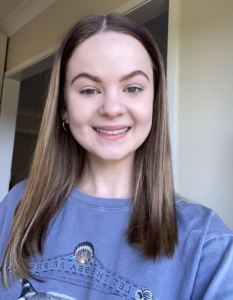
Kyah Chewying
Kyah Chewying
Kyah’s a Research Technician on an Indigenous Cadetship. When she’s not undertaking her university study, she’s in our labs.
Kyah’s seagrass project comparing species composition and adaptation to salinity is very close to her heart. She grew up on the coast where her family were heavily involved with Indigenous coastal management.
She’s excited to be working on such a unique project and believes it is the best blend of her culture and skills.
During National Reconciliation Week Kyah asks us to make a change, even if it’s small. For example, add an Indigenous place name when sending letters or packages via Australia Post.
“Education, access to resources and support can change someone’s life – it has for me,” she said.
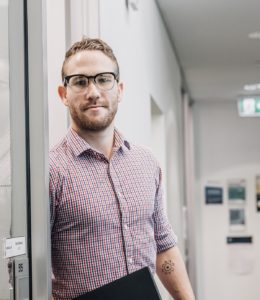
Jed Fraser
Jed Fraser
Jed’s working on understanding Aboriginal and Torres Strait Islander youth health priorities.
He is co-designing and implementing an Aboriginal and Torres Strait Islander youth-specific, holistic health assessment using electronic tablets.
As part of his research, Jed enjoys meeting Aboriginal and Torres Strait Islander peoples with diverse cultural knowledge. He said having meaningful conversations and listening is a key part of his work.
“Aboriginal and Torres Strait Islander culture should be embedded in all Australians’ everyday life; it shouldn’t just be celebrated in one week. It’s such a diverse, strong and beautiful culture that is more than 60,000 years old and we should all appreciate it,” he said.
His simple advice for National Reconciliation Week is to actively listen to Aboriginal and Torres Strait Islander peoples.
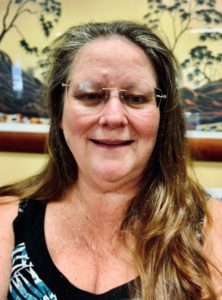
Myra Singh
Myra Singh
Myra’s an Academic Coordinator of the Young Indigenous Women’s STEM Academy and is based in central west New South Wales.
She said she encourages her students to be the best they can be and to achieve their dreams.
‘‘Success for my Aboriginal and Torres Strait Islander students has always been my passion. Understanding how they see success and what inspires them is a key focus for me. Appreciating the holistic nature of their stories and the connection between all the components is vital. Those elements contribute to the uniqueness of every person’s story,” Myra said.
A Wiradjuri woman, Myra believes that National Reconciliation Week can mean doing something big or small.
“Without action, reconciliation is just a word – easily said, but nothing unless the actions support the words.”
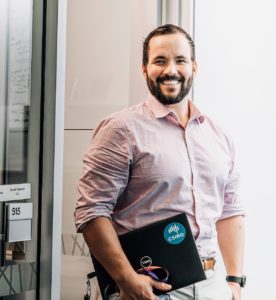
Andrew Goodman
Andrew Goodman
Hailing from Iningai Country, Andrew is researching hypertension management in partnership with Aboriginal and Torres Strait Islander communities. Using a smartphone and a web-based interactive system, Andrew hopes to assist communities and service providers to get better health outcomes.
During National Reconciliation Week and beyond, Andrew wants us to become students of history and continue to learn about Aboriginal and Torres Strait Islander culture.
He encourages us to move our journey past conversation and into true accountable action.

